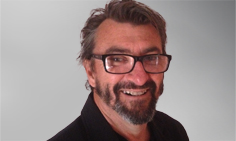MANY children who develop cancer recover and go on to live full and rich lives. But some don’t, and for their parents each day is full of difficult decisions.
How much faith do you put in a health care system that, regardless of the efforts of the health professionals involved, can feel, at different times, caring, thoughtless, warm, inhumane and fantastic?
How do you find the right balance between caring for your child and caring for other children in the family? And sometimes the last thing considered is the need to care for themselves and for each other.
Probably the hardest decision is knowing when to stop treatment. Do you stop when your medical team tells you that death is inevitable? Or do you think “maybe there’s someone else who knows a better way”?
Sometimes there is someone who knows a better way, or at least has a different approach to risk and benefit than the people who have been caring for your child. In retrospect, it may or may not turn out to be a good idea to try a riskier approach, but who’s to know at the time?
A study published in Paediatrics examined closely just one aspect of this most difficult of times. The authors wanted to explore parental hope which, they said, has been narrowly defined as hope for life, in the absence of any solid knowledge about what parents mean by hope.
The researchers audiotaped conversations between doctors and parents of 32 children whose cancer had relapsed or proved refractory. They then interviewed the parents, specifically asking them about hope and about their understanding of the prognosis.
They found that the parents’ understanding of the prognosis reflected the prognosis offered, whether directly or vaguely, by the doctors. In other words, parents had a realistic understanding of their child’s prognosis.
When interviewed directly by the authors later, almost all parents expressed hope for either a cure or a long life for their child. They also hoped for a good quality of life for their child and for a chance for them to be “a normal child”.
When pressed on this, many openly acknowledged that it was possible to expect the worst while hoping for the best. Some described the mental games they played to keep these two ideas — that may well be incongruent — in play.
However, the authors said although parents could distinguish hope and reality, not every parent was at peace with the distinction.
“Thus, we should remember”, the authors wrote, “that a conversation about hope does not mask the pain of the situation; instead, it may unmask it.
“Yet parents appear to be experiencing these struggles whether clinicians address them or not. Opening the conversation to hope may be one way for clinicians to join parents, and the children they love, through these times.”
Dr Mark Ragg is an adjunct senior lecturer in the Sydney School of Public Health, University of Sydney.
Jane McCredie is on leave.

 more_vert
more_vert
Well said Mark. Perhaps there is sometimes a point where a parent also hopes for ease and freedom from the body’s suffering, even if that entails death. Certainly some terminally ill children understand the concept. Some evn try to teach their parents this kind of acceptance (which has to be as hard as it gets).